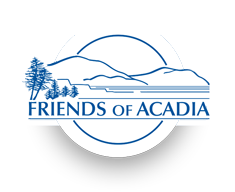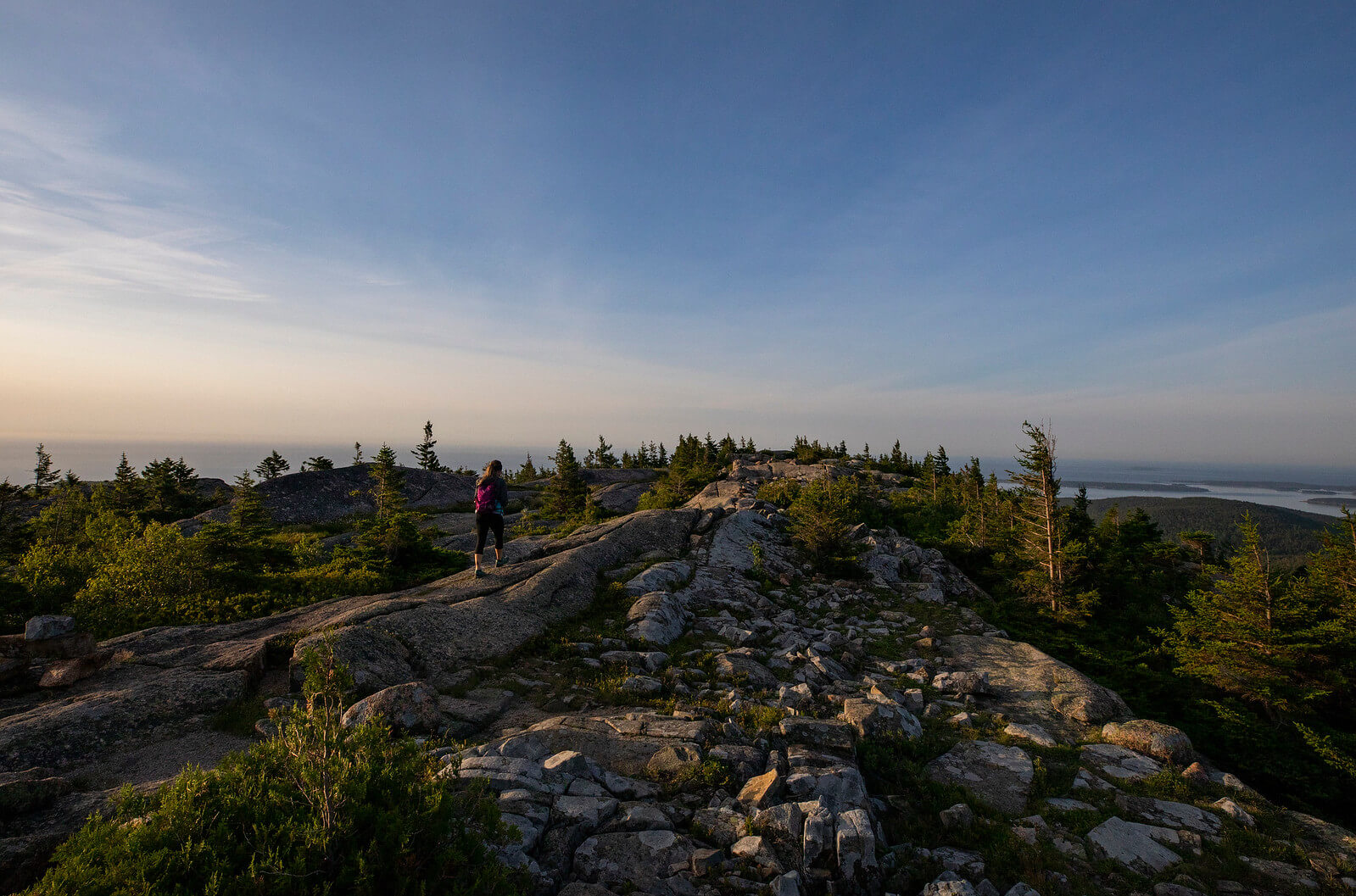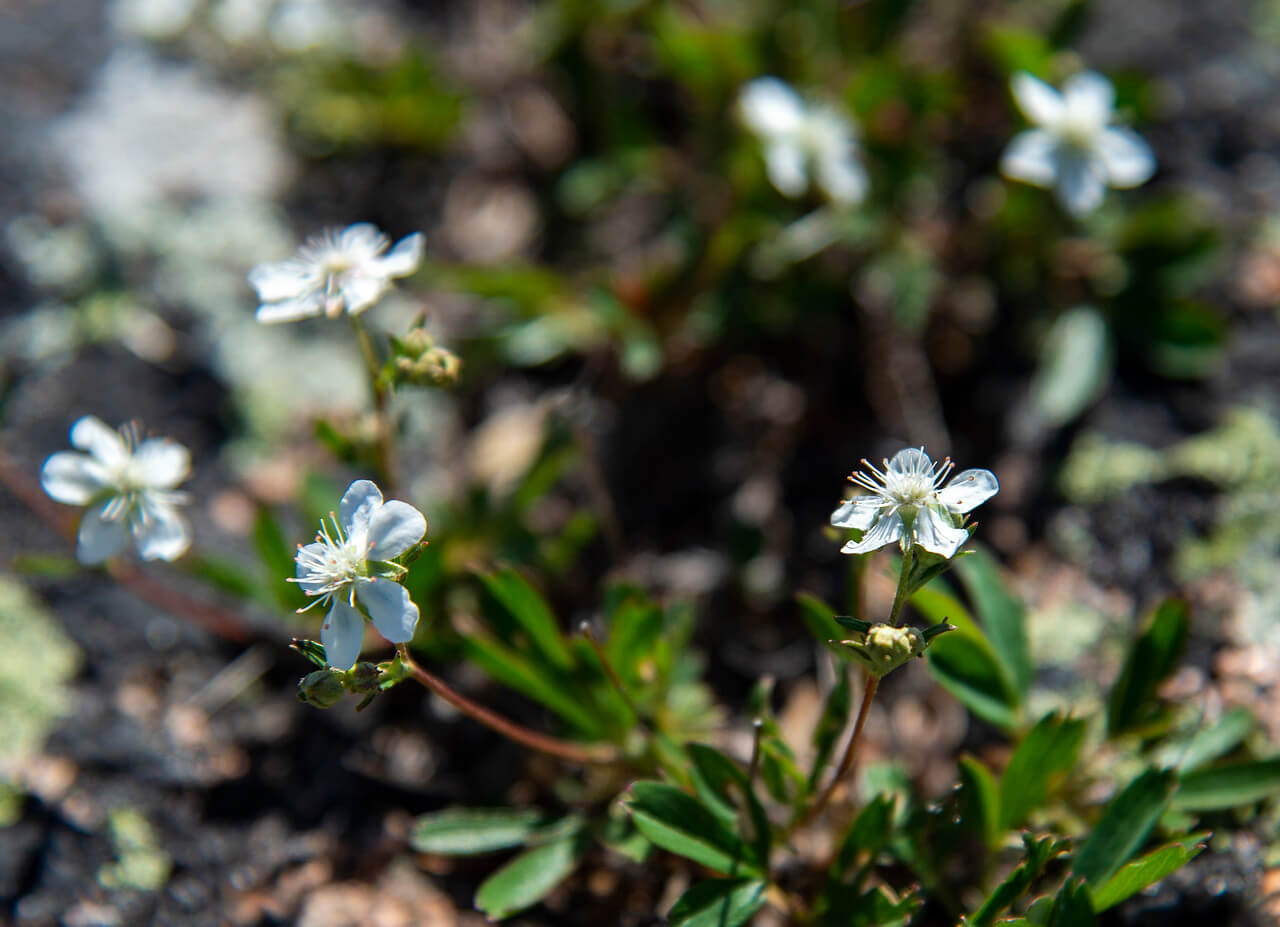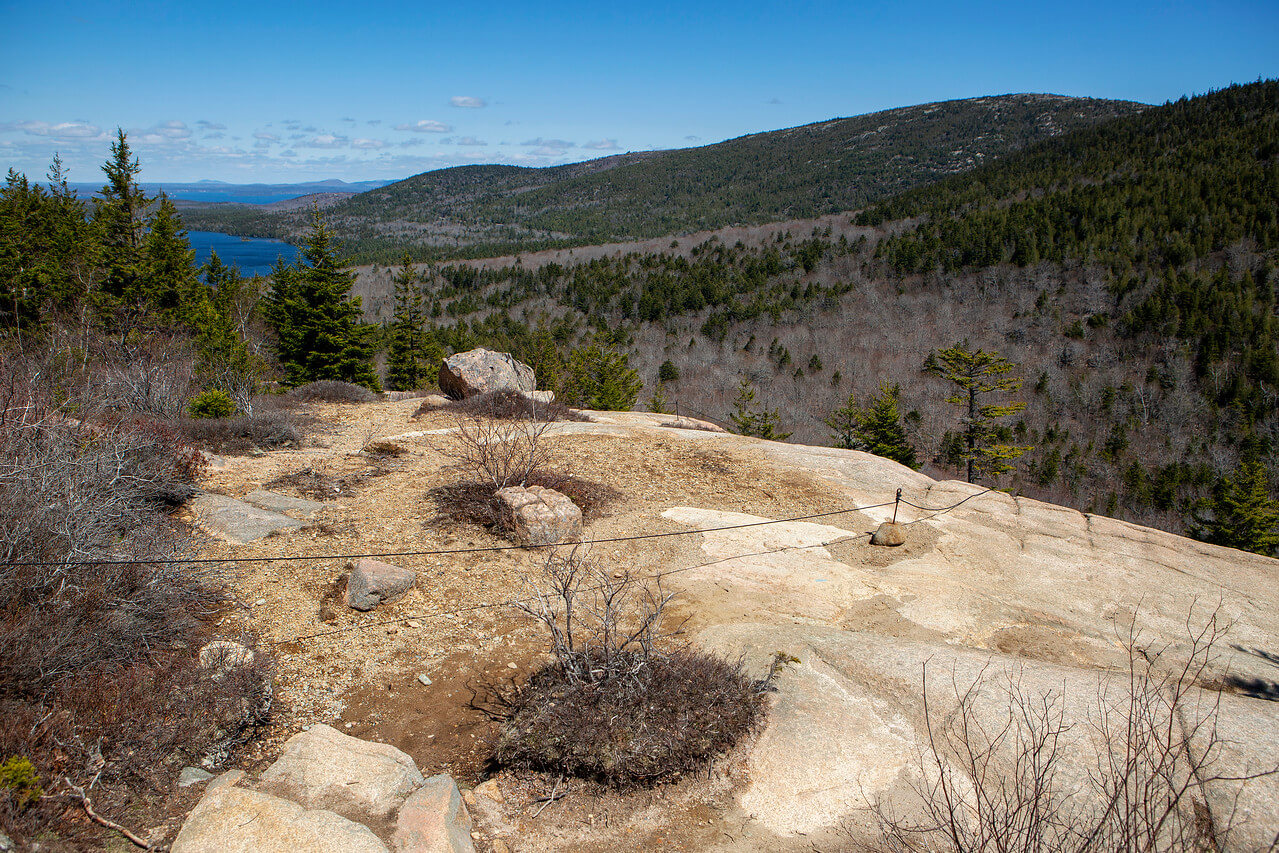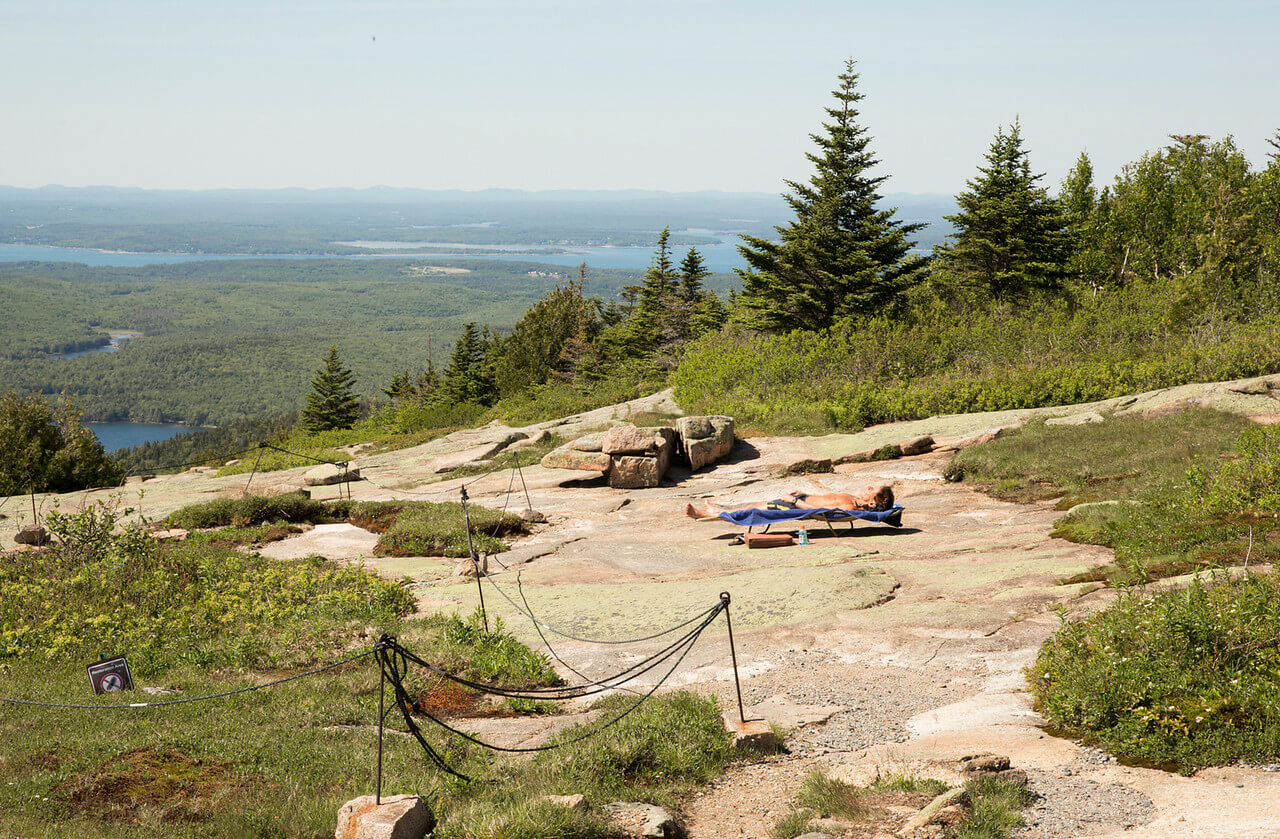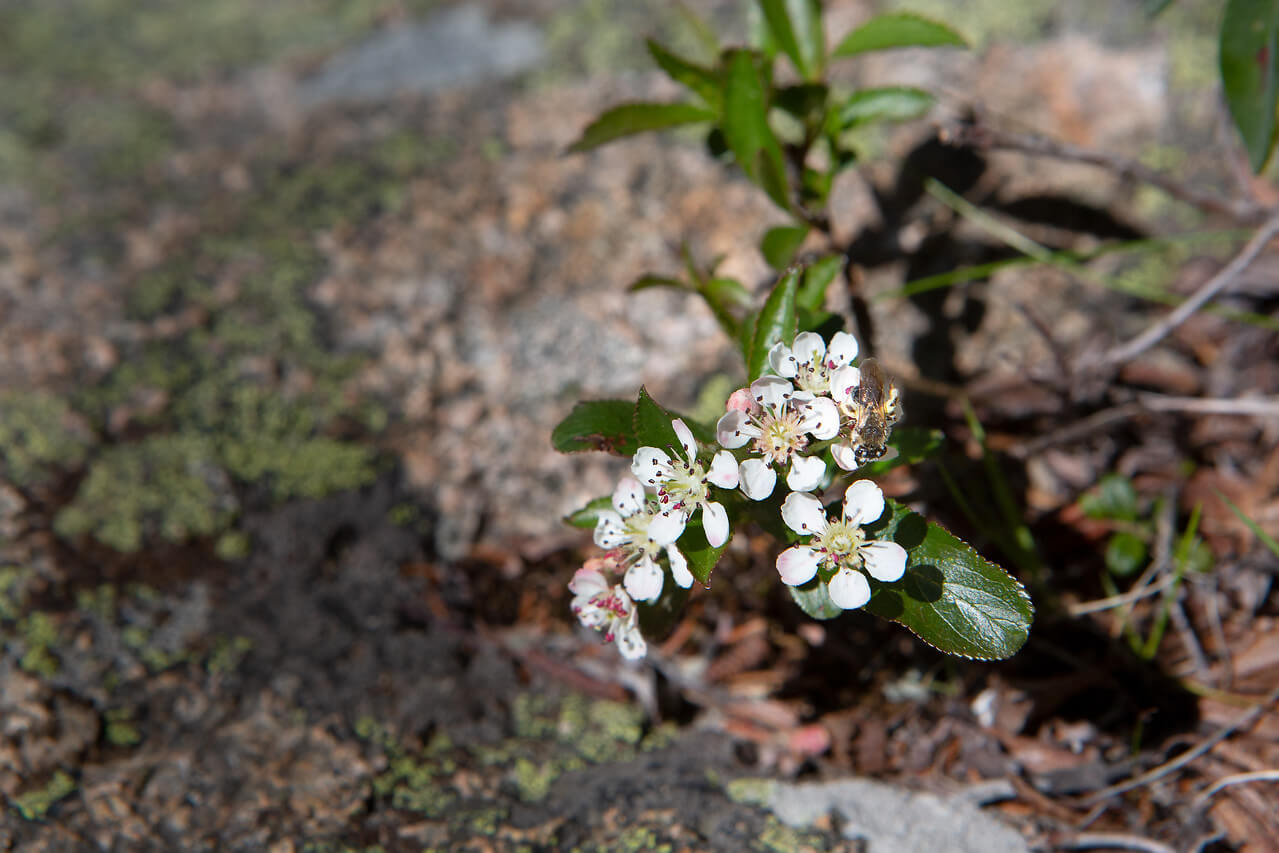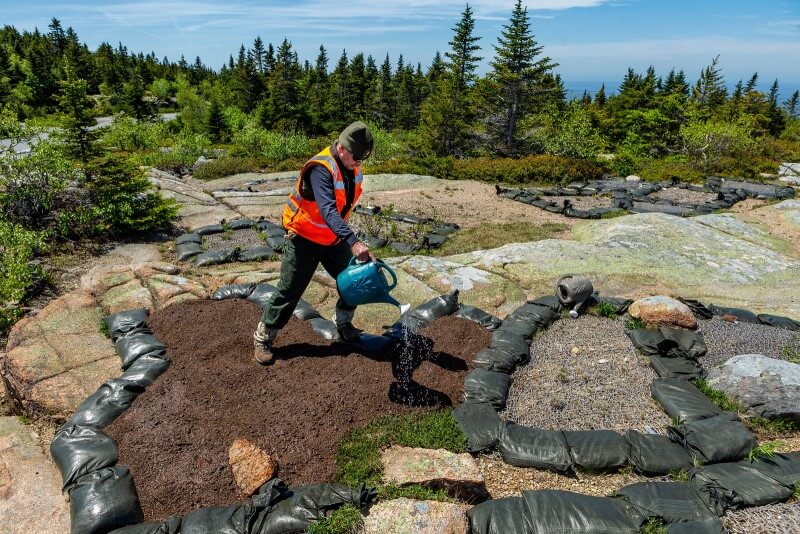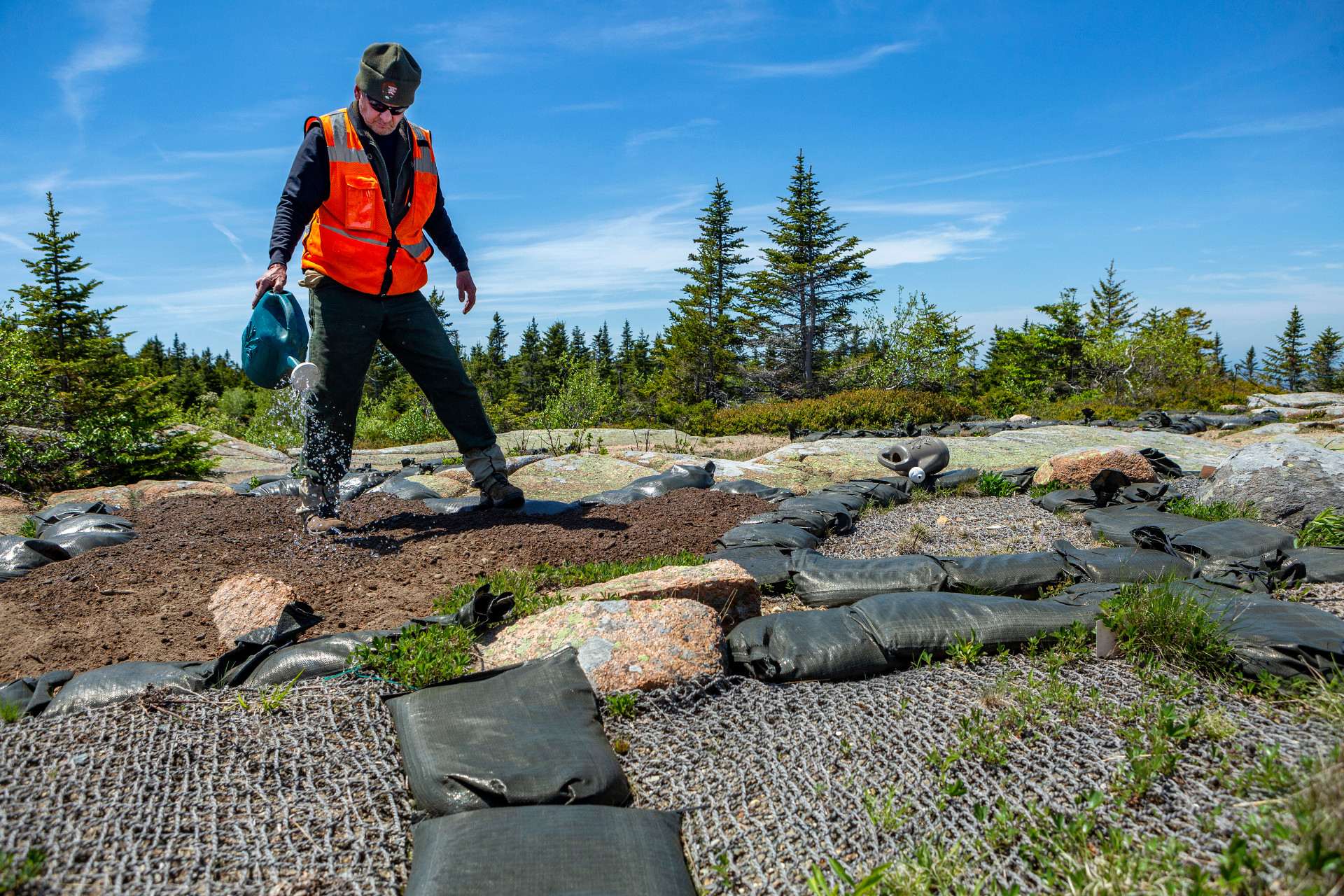
Jim Burka, Acadia National Park biological science technician, waters sterilized soil recently added to areas that will be revegetated near the summit of Cadillac Mountain in Acadia National Park, Tuesday, May 25, 2021. (Photo by Ashley L. Conti/Friends of Acadia)
Despite their hardened granite, Acadia’s mountain summit ecosystems are incredibly fragile. Human-caused climate change is causing longer growing seasons, more rain, less snow, and fewer species that we know and love. Extreme weather events are damaging landscapes, cultural resources, and infrastructure. Invasive plants species are trying to out-compete native summit plants. Trampling by humans has damaged the plant communities at the top of mountains.
Together with partners-in-science like Friends of Acadia, park scientists are studying the summit plant communities and in some cases actively working to restore them.
Friends of Acadia is supporting the park’s work to keep the sub-alpine vegetation of Acadia’s summits healthy, diverse, and adaptable. Thanks to donations from our members, the lessons learned from restoration activities on Cadillac Mountain are being extended to Penobscot and Sargent Mountains.
 Join
Join Donate
Donate Acadia National Park
Acadia National Park